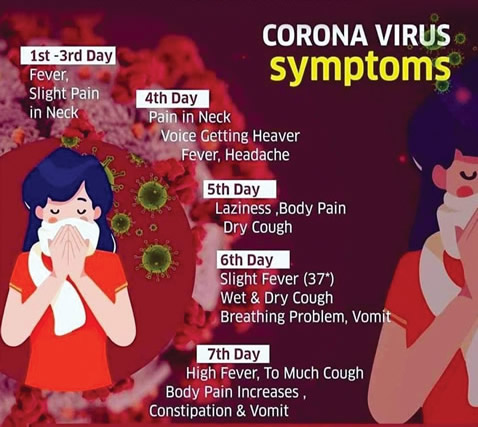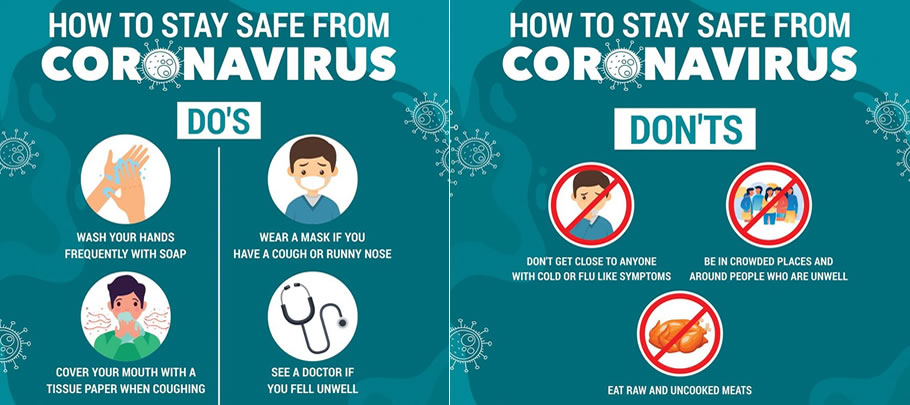Covid-19
CORONAVIRUS PANDEMIC IN INDIA,CORONAVIRUS OUTBREAK,COVID-19 CASES IN INDIA,COVID INDIA.
COVID-19 – ALL YOU NEED TO KNOW
We know this is a stressful time and people want to know what they can do right now to protect themselves and their families. That’s why Prashanth Super Speciality Hospital is highlighting some everyday steps that people can take now. In addition, stay informed about what’s happening in your local community and always follow the directions of state and local authorities.
- SYMPTOMS OF CORONA VIRUS (COVID-19)
- LIMIT THE SPREAD OF GERMS AND PREVENT INFECTION
- FAQS ON CORONAVIRUS (COVID-19)
- PREGNANCY AND CORONA VIRUS
Symptoms :
COVID-19 symptoms include fever, tiredness, aches & pains, sore throat, shortness of breath, and dry cough. Very few people might experience diarrhea, nausea, or a runny nose. Symptoms may appear 2-14 days after exposure. Call your doctor for medical advice if you think you have been exposed to COVID-19 and develop any of these symptoms.

We recommend the following steps to help prevent the spread of germs.
• Stay home
• Avoid gatherings of more than 10 people
• Practice social distancing by keeping a distance of about six feet from others if you must go out in public
• Wash your hands often with soap and water for at least 20 seconds, especially after being in a public place, or after blowing your nose, coughing or sneezing
• Use a hand sanitizer with at least 60% alcohol
• Avoid touching your eyes, nose, or mouth
• Avoid close contact with people who are sick
• Cover your nose and mouth with a tissue when coughing or sneezing; throw used tissues in the trash. If a tissue isn’t available, cough or sneeze into your elbow or sleeve, not your hands
• Clean and disinfect frequently touched surfaces daily
• It includes tables, doorknobs, light switches, handles, desks, computers, phones, keyboards, sinks, toilets, faucets, countertops, and more
• If surfaces are dirty, clean them – use detergent or soap and water prior to disinfection
• Wear a facemask if you are sick. You should wear a facemask when you are around other people (e.g., sharing a room or vehicle) and before you enter a healthcare provider’s office
• When you go out in public, keep away from others who are sick
• Limit close contact and wash your hands often
• People with mild symptoms who are otherwise healthy should self-isolate
EXTRA PRECAUTIONS YOU CAN TAKE:
• Stock up on supplies
• Refrain from smoking and other activities that weaken the lungs
• Contact your healthcare provider to ask about obtaining extra necessary medications to have on hand in case there is an outbreak of COVID-19 in your community and you need to stay home for a prolonged period of time
• Be sure you have over-the-counter medicines and medical supplies (tissues, masks, hand sanitizers, etc.)
• Have enough household items and groceries on hand so that you will be prepared to stay at home
WHO IS AT A HIGHER RISK?
Early information shows that some people are at a higher risk of getting infected from this virus. This includes older adults and people who have serious chronic medical conditions like heart disease, diabetes, and lung disease. If you are at higher risk for serious illness from COVID-19 because of your age or a serious medical condition, it is extra important for you to take action to avoid getting sick.
WHAT IS CORONAVIRUS?
Coronavirus is a large family of viruses that may cause illness in animals and humans. In humans, Coronavirus causes various respiratory infections ranging from the common cold to more severe diseases such as Middle East Respiratory Syndrome (MERS) and Severe Acute Respiratory Syndrome (SARS). The most recently discovered Coronavirus causes Coronavirus disease COVID-19.
WHAT IS COVID-19?
COVID-19 is an infectious disease caused by the most recently discovered Coronavirus. This new virus and disease were unknown before the outbreak began in Wuhan, China, in December 2019 as per the reports.
WHAT ARE THE SYMPTOMS OF COVID-19?
The most common symptoms of COVID-19 are fever, tiredness, and dry cough. Some patients may have aches and pains, nasal congestion, runny nose, sore throat or diarrhea. These symptoms are usually mild and begin gradually. Some people become infected but don’t develop any symptoms and don’t feel unwell. Most people (about 80%) recover from the disease without needing any special treatment. Around 1 out of every 6 people who get COVID-19 becomes seriously ill and develops difficulty breathing. Older people and those with underlying medical problems like high blood pressure, heart problems or diabetes, are more likely to develop serious illness. People with fever, cough, and difficulty in breathing should seek medical attention immediately.
HOW DOES COVID-19 SPREAD?
People can catch COVID-19 from others who have the virus. The disease can spread from person to person through small droplets from the nose or mouth which are spread when a person with COVID-19 coughs or exhales. These droplets land on objects and surfaces around the person. Other people then catch COVID-19 by touching these objects or surfaces, then touching their eyes, nose, or mouth. People can also catch COVID-19 if they breathe in droplets from a person with COVID-19 who coughs out or exhales droplets. Therefore, it is important to stay more than 1 meter (3 feet) away from a person who is sick. World Health Organization (WHO) is assessing ongoing research on the ways COVID-19 is spread and will continue to share the updated findings.
SHOULD I WORRY ABOUT COVID-19?
Illness due to COVID-19 infection is generally mild, especially for children and young adults. However, it can cause serious illness: about 1 in every 5 people who catch it need hospital care. It is therefore quite normal for people to worry about how the COVID-19 outbreak will affect them and their loved ones. We can channel our concerns into actions to protect ourselves, our loved ones and our communities. First and foremost, among these actions is regular and thorough hand-washing and good respiratory hygiene. Secondly, keep informed and follow the advice of the local health authorities including any restrictions put in place on travel, movement, and gatherings.
SHOULD I WEAR A MASK TO PROTECT MYSELF?
Only wear a mask if you are ill with COVID-19 symptoms (especially coughing) or looking after someone who may have COVID-19. A disposable face mask can only be used once. If you are not ill or looking after someone who is ill, then you are wasting a mask. There is a world-wide shortage of masks, so WHO urges people to use masks wisely. WHO advises the rational use of medical masks to avoid unnecessary wastage of precious resources and misuse of masks. The most effective ways to protect yourself and others against COVID-19 are to frequently clean your hands, cover your cough with the bend of elbow or tissue and maintain a distance of at least 1 meter (3 feet) from people who are coughing or sneezing. See basic protective measures against the new coronavirus for more information.
HOW LONG IS THE INCUBATION PERIOD OF COVID-19?
The "incubation period" means the time between catching the virus and beginning to have symptoms of the disease. Most estimates of the incubation period for COVID-19 range from 1-14 days, most commonly around five days. These estimates will be updated as more data becomes available.
IS THERE A DRUG, VACCINE, OR TREATMENT FOR COVID-19?
Not yet. To date, there is no vaccine and no specific antiviral medicine to prevent or treat COVID-2019. However, those affected should receive care to relieve symptoms. People with serious illnesses should be hospitalized. Most patients recover thanks to supportive care. Possible vaccines and some specific drug treatments are under investigation. They are being tested through clinical trials. WHO is coordinating efforts to develop vaccines and medicines to prevent and treat COVID-19.

DOCTOR’S NOTE
As we all know, this is a tense situation for all of us. COVID-19 has spread all over the world. Pregnancy can sometimes be an uncertain and stressful period in the best of circumstances. But during a pandemic, that anxiety can quickly multiply.
As an assisted reproductive doctor, I feel that it is my duty to offer some advice for all the pregnant women out there, eagerly waiting to bring a bundle of joy into this world. That’s why I am sharing this video with you. It would be a question for every pregnant woman if COVID-19 would affect the baby in the womb. Expectant mothers are always looking out to keep their babies healthy. But at the moment, our knowledge about this form of coronavirus, which can lead to COVID-19 infection, is still in its infancy.
COVID-19 virus is a new virus. ‘Vertical transmission’ of any infection occurs when the infection is passed from a mother to her unborn baby through the placenta. To date, several studies have been carried out and they all suggest no evidence of vertical transmission which can be a huge relief for mothers-to-be. There is also no evidence that the virus can pass to your baby while you are pregnant or during birth.
Given that this is a novel virus, little is known about its impact on pregnant women. During pregnancy, a woman’s immune system is weakened making her susceptible to infections. We do not yet know enough about how the COVID-19 affects pregnancy to draw any definite conclusions. While the data is currently limited, it is reassuring that there is no evidence that the virus can pass to a baby during pregnancy. But we do advise extra precautions for women who are expecting.
- Please follow these preventive measures:
- Practice social distancing
- Avoid touching your face
- Keep surfaces clean
- Wear a mask
- Drink hot water every 15 minutes
- Wash hands regularly
- Use hand sanitizer
Efforts are being made to prevent the COVID-19 germ spread. Let us hope that we find a cure soon. However, if you develop symptoms that are consistent with coronavirus – a persistent dry cough or a high temperature – you must self-isolate and speak with your doctor. It pays to be prepared, not scared. Simple steps like thorough hand washing and limiting your time in crowds can go a long way in protecting you and your baby.
To know more about Novel Corona Virus (COVID-19), please refer the WHO and MoHFW websites respectively.